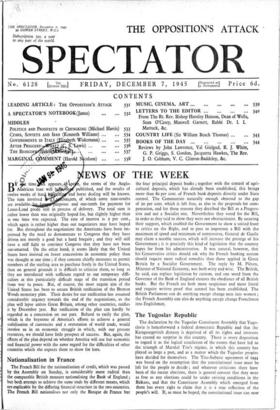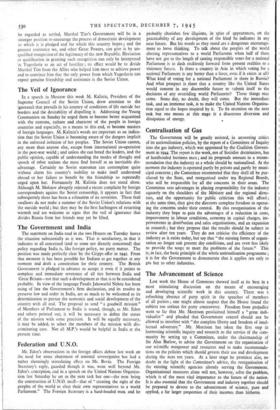The Yugoslav Republic
The declaration by the Yugoslav Constituent Assembly that Yugo- slavia is henceforward a federal democratic Republic and that the Karageorgevitch dynasty is deprived of all its rights and interests has caused no surprise in this country. There is every disposition to regard it as the logical conclusion of the events that have led to the triumph of Marshal Tito's regime, in which this country has played so large a part, and as a matter which the Yugoslav peoples have decided for themselves. The Tito-Subasic agreement of 1944 was based on the assumption that the constitutional issue must be left for the people to decide ; and whatever criticisms there have been of the recent elections, there is general consent that they were as free as any elections could be under existing conditions in the Balkans, and that the Constituent Assembly which emerged from them has every right to claim that it is a true reflection of the people's will. If, as must be hoped, the constitutional issue can now
be regarded as settled, Marshal Tito's Government will be in a stronger position to encourage the process of democratic development to which it is pledged and for which this country hopes ; and the greatest assistance we, and other Great Powers, can give is by un- qualified recognition of the legitimacy of the new Republic. Hesitation or qualification in granting such recognition can only be interpreted in Yugoslavia as an act of hostility ; its effect would be to divide Marshal Tito from the Allies who helped him most to achieve power and to convince him that the only power from which Yugoslavia can expect genuine friendship and assistance is the Soviet Union.































